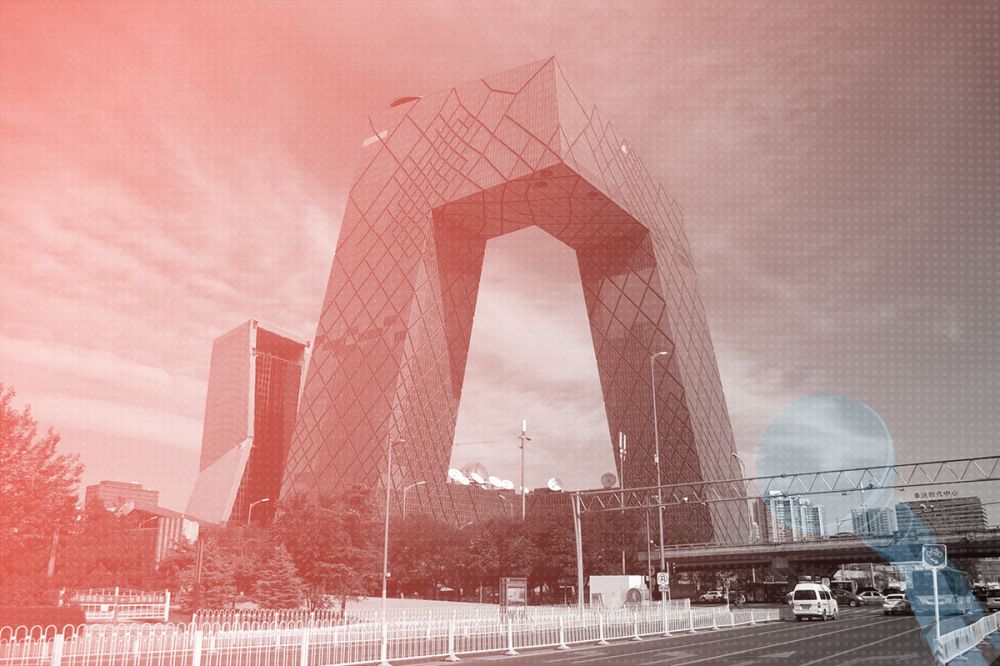
China Central Television, available at commons.wikimedia.org.
One week ago, the UK’s Office of Communications (Ofcom), the government regulator for broadcasting and telecoms, withdrew the UK broadcast license for China Global Television Network (CGTN), China’s state-run English-language satellite news channel. The decision was made on the basis of UK broadcasting laws, which stipulate that licensees must have full control, including editorial oversight, over licensed services.
The revocation notice from Ofcom, available online and transparent to all, makes plain that the primary issue of concern in the regulator’s investigation of CGTN last year was that of control, relating to the question of CGTN’s objects and purpose. The notice states:
[We] have determined that CGTNC could not currently be granted a broadcasting licence as it would be disqualified under the statutory scheme. This is because CGTNC is both controlled by and an associate of an organisation, namely CCTV, which, as a result of its relationship with the Chinese Communist Party through the China Media Group, is a body whose objects are wholly or mainly of a political nature and/or is controlled by a body whose objects are wholly or mainly of a political nature.
Ofcom’s conclusion, then, after months of deliberation, was that CGTN’s operations in the UK are not independent, that it does not have full control, or editorial oversight over its programming.
Another fact is clear in the Ofcom revocation notice – that CGTN and its representatives sought to argue that it in fact did have control over the licensed services. They asserted, for example, that “the news gathering and production activities for the CGTN service are editorially independent and managed much like that of other international news organizations.” They emphasized that CGTN’s “Global Editorial Board exercises independent editorial control over the CGTN service.” On the question of affiliation with CCTV, the state-run broadcaster, and its subsidiary status under the China Media Group, they argued that CCTV “continues to exist as an independent legal person under Chinese law and its institutional nature remains unchanged.”
What should we make of all this talk of independence?
First, we should note that CGTN in fact accepted the basic legal premise behind the Ofcom decision – that a licensee must exercise full and independent control over the licensed services. For any seasoned observer of the Chinese media, however, CGTN’s defense of its independence, and even that of CCTV, makes for odd reading. After all, that both networks are entirely beholden to the Chinese Communist Party could never have been seriously questioned.
It is a hard fact that these media are subject to the leadership of the CCP — a fact that has been constantly re-iterated by China’s “core” leader, Xi Jinping. Consider that in his February 2016 speech on news and public opinion, his most authoritative statement of media policy to date, which was accompanied by an official tour of CCTV, Xi Jinping said: “We must take on this responsibility and mission [to raise the banner of the Party and lead public opinion]; we must give political direction the primary place, firmly holding to the principle of the Party nature [of the media], firmly adhering to the Marxist View of Journalism, firmly adhering to correct guidance of public opinion, and firmly adhering to an emphasis on positive propaganda.”
In ruling that CGTN is “is controlled by a body whose objects are wholly or mainly of a political nature,” Ofcom is merely stating, albeit with a bit more concision, what the Party clearly and unambiguously insists upon. This is a point I will come back to – even though, as I said already, it should be painfully obvious.
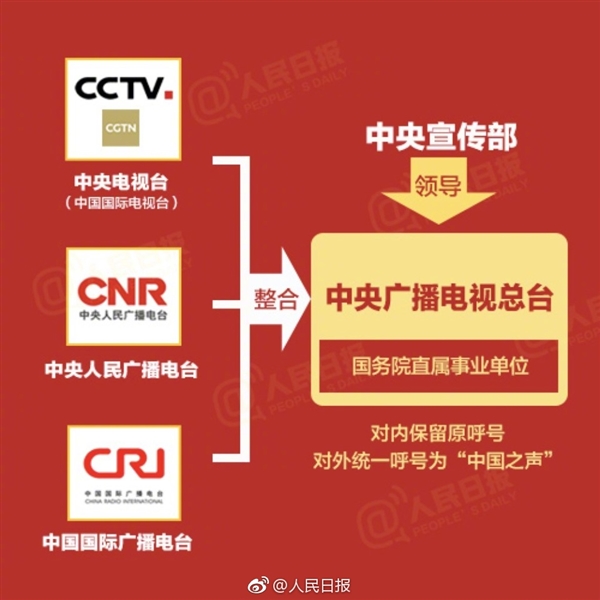
As Ofcom’s ruling against CGTN sets off a wave of verbal attacks in China against the UK, and as it has brought a retaliatory ban against BBC World News for “violating the principles of truth and impartiality,” the sense of self-denial about the nature of China’s media system has been incredible to observe.
On February 6, a commentary in the Chinese Communist Party’s official People’s Daily attributed to “Zhong Sheng” (钟声), a pen name used for important pieces on international affairs on which the leadership wishes to register its view, called on leaders in the UK to “correct the error” of the Ofcom decision. The move, it said, was “a brutal suppression of Chinese media,” and it had “fully exposed the falseness of the so-called press freedom flaunted by the UK.” For good measure, the commentary tossed in the usual zinger about “anti-China forces.”
But the commentary did more than just fume. It attempted to cross the aisle, seizing the moral high ground and staking claim to the noble principles at the heart of communications and journalism. “The media are important bridges and ties by which the people of various countries strengthen their interactions and advance understanding,” it said. And on media values: “Chinese media abide by journalistic ethics, and uphold the principles of objectivity, impartiality, truth and accuracy, carrying out ordinary news reporting in various parts of the world, including the UK.”
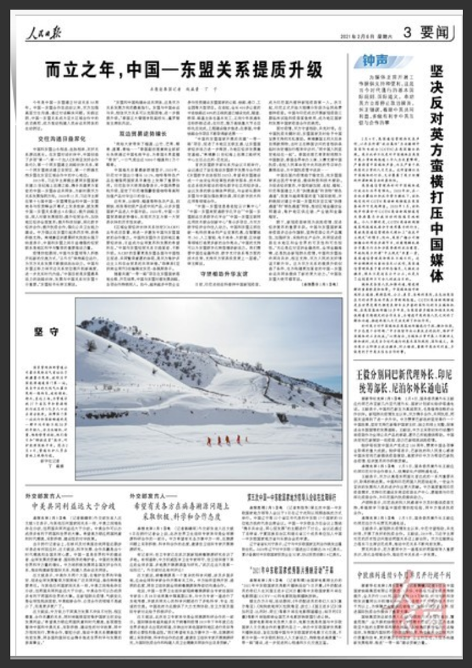
Attacking the UK for its decision, Shanghai’s Xinmin Evening News, directly under the local CCP Committee, could not resist an Austin reference as it implicitly advocated the same values of impartiality, truth and accuracy by sucker-punching the UK media:
Belittling and discrediting the media of other countries will not ultimately promote and demonstrate their own excellence. The British mainstream media have been frequently exposed in scandals for their pre-set positions and manufacture of fake news, revealing their pride and prejudice to the world.
Character attacks on the British media have been par for the course over the past week. With a hint of the sensational, the Xinmin Evening News piece ran through several cases and points of criticism in the BBC’s history. It cited cases like the misuse of a massacre photo, which the BBC openly acknowledged and which was robustly discussed, as such cases should be in societies with professional media. It mentioned a documentary on racist violence the BBC aired ahead of Euro 2012, and which drew harsh criticism from several hosts, including Poland and Ukraine. BBC editors openly responded to criticisms in that case as well, defending their work.
Shanghai’s Guancha Syndicate (观察者网) similarly tried to revisit every ethical outrage in the BBC’s history in a diatribe that attacked the freedom of expression espoused by “Western capitalist nations.” Parts of the attack were plain atavism, as though pulled directly from the Party media of the 1950s, when such broadsides generally criticized press ownership in the United States, arguing that only families like the Scripps and the Howards could enjoy press freedom – because they owned the press.
We could go on and on about implicit bias and institutional bias, about good reporters and bad reporters, about fairness and accuracy. But all this talk about “excellence,” truth and bias is a monumental distraction. First, because excellence was never the standard applied in the Ofcom decision. And second, because the standard that was applied, independence, is actually an issue on which Ofcom and the CCP are fundamentally in agreement.
The “Zhong Sheng” commentary in the People’s Daily said that “Chinese media abide by journalistic ethics, and uphold the principles of objectivity, impartiality, truth and accuracy,” suggesting that these principles apply in the case of CCTV, CGTN and all Party-state media. But let’s take another clear-headed look at the language China uses internally to talk about these media. When it comes to analyzing this discourse, the potential choices are legion. We could, for example, return to Xi Jinping’s 2016 speech on media and his visit to CCTV, during which he stressed that all media “must be surnamed Party” (必须姓党) – and specifically that they must “love the Party, protect the Party and serve the Party.”
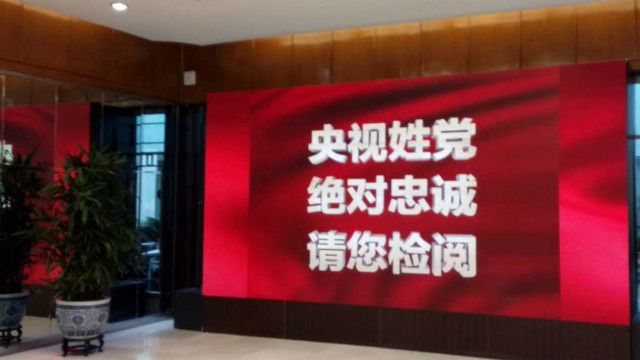
For anyone who was paying the least bit of attention to Xi Jinping’s February visit and speech in 2016, the question of independence is case closed. But let us turn for good measure to Xi Jinping’s language about the media, and particularly CCTV, that accompanied the 60th anniversary of the network, celebrated on September 26, 2018. The day after the anniversary, the news of Xi’s commemoration of the anniversary was on the front-page of the People’s Daily, in prominent position just beneath the masthead.
The focus of the speech, as the headline indicated, was on fashioning major Party-state media as “first-rate international mainstream media,” the word “mainstream” referring here, as always in a CCP context, to media directly run by the Party and government. He also spoke of “strengthening mainstream public opinion” (主流舆论), meaning rather explicitly the Party’s power to control the news and set the agenda.
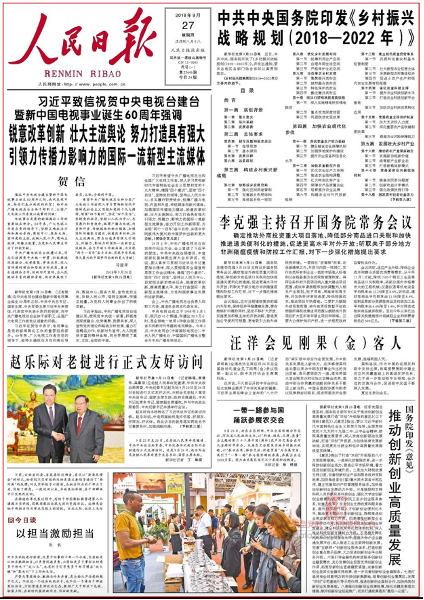
As Xi Jinping lays out the role of CCTV, today and historically, there is no mistaking the fact that the concepts so recently and so fervently espoused by China’s Party-state media in regards to the Ofcom decision are nowhere to be found.
Xi Jinping said in his greeting that the television industry is an integral part of the Party’s news and public opinion work. For 60 years, the masses of television industry workers have under the leadership of the Party adhered to correct political orientation and [correct] public opinion guidance, focused on the central tasks [of the Party], serving its overall interests, propagating the viewpoint of the Party, reflecting the voice of the people, singing the main theme (唱响主旋律), transmitting positive energy, making immense positive accomplishments for the work of the Party and the people.
This, mind you, is only the second paragraph of the official Xinhua release in the People’s Daily. The rest of the release, as Xi’s greeting to CCTV itself, is chockful of CCP jargon, including the notion that CCTV must continue to conduct “external propaganda,” presenting to the world a “true, complete and three-dimensional China.” This is the only point at which the notion of truth emerges at all, but of course this is the Party’s truth, and about this fact there is never any mistake. At one point, too, Xi emphasizes CCTV’s adherence to the so-called “Four Consciousnesses” (四个意识), which refer to consciousness of the 1) need to maintain political integrity with the Party, 2) think in big-picture terms of the Party’s interests, 3) uphold the leadership core, and 4) maintain alignment with the CCP.
Aspect three of the “Four Consciousnesses,” the so-called “core,” refers of course to General Secretary Xi Jinping himself, which is why this CCP catchphrase is closely associated with the consolidation of Xi’s position within the Party. So not only is the fundamental role of CCTV and all Party-state media defined politically as the need to adhere to the CCP and its prerogatives, but that role also formally revolves around China’s most powerful individual.
If this is not yet clear enough, we can turn to page five of the same edition of the People’s Daily, where a “commentator from CCTV” (央视评论员) offers an organizational view of the network’s role. The entire commentary is a genuflection. But we can focus on one illuminating passage.
Our banner determines our direction [as a network]. We must take speaking politics (讲政治) as our first demand, making loyalty and reliability [to the Party] our first standard. As a member of the “national team” at the news frontlines, and as the frontline troops of broadcast television, we must firmly adhere to the principle of Party nature [of the media], implementing the demand that “Party media be surnamed Party. In speaking politics we must hold to the highest standard, the strictest demands, firmly establishing the “Four Consciousnesses,” with real actions and true results firmly defending the core status of General Secretary Xi Jinping, resolutely defending the authority and unified leadership of the CCP Central Committee, maintaining a high level of uniformity with the CCP Central Committee with Xi Jinping as the core in terms of political position, political direction and political principles.
Those who dutifully donned their Wellingtons and trudged through the muck of that paragraph will not have stumbled across words like “independence,” “impartiality,” “fairness” or “truth.” They just don’t matter, and there is perhaps no better proof of this than the phrase “speaking politics,” synonymous with obedience to the Party’s political prerogatives, however expedient, and which had an unfortunate role to play at the start of the Covid-19 pandemic last year.
But perhaps the best translation of the above paragraph might be lifted directly from Ofcom’s revocation notice. The CCTV commentator might just as well have written that his network is “a body whose objects are wholly or mainly of a political nature and/or is controlled by a body whose objects are wholly or mainly of a political nature.”
How odd that this matter should cause such an international fury when all sides essentially see eye to eye.
[Featured Image at Top: Screenshot from 2016 coverage on CCTV of the launch of CGTN.]




















